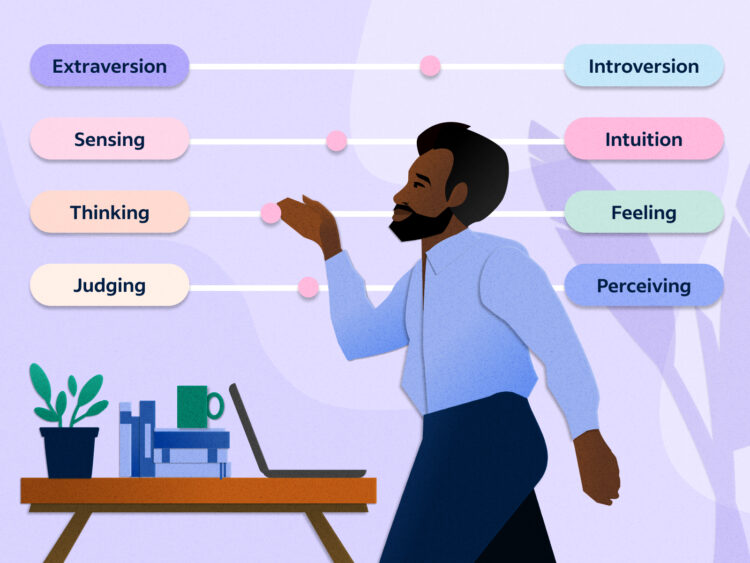A career is not just about earning a living—it’s an essential part of our identities. However, there may be times when our professional paths no longer resonate with us. It’s during such moments that we must contemplate the prospect of a career change.
Such changes often lead to personal fulfillment. They open doors to exciting challenges, fresh perspectives, and opportunities for growth. This article aims to guide you through this transformative journey, shedding light on how you can transition into a career that brings you joy, purpose, and satisfaction.
Assessing Your Current Situation

Reflecting on job satisfaction and personal fulfillment
Start by taking a close look at your present circumstances. Are you genuinely satisfied with your job, or does it feel like a dead-end street? Reflect on whether your career is personally fulfilling or just a paycheck generator.
Identifying reasons for feeling stuck or unfulfilled in the current career
Dig deep and identify the factors that are making you feel stuck. Are there growth opportunities? Do you feel valued? Do you align with the company’s culture and values? Understanding the reasons for your dissatisfaction will guide you towards a meaningful career change.
Clarifying Your Passions and Interests
Exploring personal interests and hobbies
Passions and hobbies are often an indication of what we genuinely enjoy. Take time to explore what lights you up—these areas might point you towards a career path that will bring more satisfaction and happiness.
Identifying transferable skills and talents
Next, identify the skills you have acquired from your hobbies, past roles, or life experiences. These transferable skills might just be the bridge to your next career.
Researching and Exploring New Career Paths

Conducting thorough research on potential careers
Start exploring potential new careers that align with your interests and skills. Read industry reports, attend relevant webinars, and gather as much information as possible about your chosen fields.
Networking and seeking informational interviews
Try to connect with professionals in your field of interest. Seek informational interviews, which can provide first-hand insights and knowledge about the career you’re interested in.
Considering job shadowing or internships to gain firsthand experience
Internships and job shadowing can offer valuable hands-on experience. They also provide a realistic idea of what a day in your new career would look like.
Evaluating and Addressing Skills and Knowledge Gaps
Assessing required skills and qualifications for the desired career
Review job descriptions in your chosen field to understand the necessary qualifications. This can help you identify any skill gaps that need to be filled.
Identifying and pursuing relevant training, courses, or certifications
There are numerous courses, certifications, and training programs that can equip you with the skills you need for your new career. Consider enrolling in these to enhance your employability.
Creating a Transition Plan

Setting short-term and long-term career goals
Create a roadmap for your career change by setting both short-term and long-term goals. These will serve as milestones on your career transition journey.
Developing a step-by-step action plan for the career change
Break down your goals into manageable tasks. This step-by-step action plan will make your career transition process less overwhelming and more structured.
Considering financial implications and potential adjustments
Career transitions may involve financial implications, such as a temporary pay cut or the cost of further education. It’s crucial to consider these factors and plan accordingly.
Building a Support System
Seeking guidance and advice from mentors or career coaches
Mentors and career coaches can offer invaluable advice based on their experience. They can provide practical guidance and emotional support during your career transition.
Connecting with professional networks and communities
Professional networks can offer connections, job opportunities, and insights into your new career field. Leverage these communities to support your career change journey.
Sharing aspirations and seeking support from friends and family
Share your aspirations with your loved ones. Their support, understanding, and encouragement can be crucial during this period of transition.
Taking the Leap

Preparing for the transition mentally and emotionally
Career transitions can be daunting. Prepare yourself mentally and emotionally to embrace the change, overcome challenges, and seize opportunities.
Taking calculated risks and embracing new opportunities
Embrace calculated risks and pursue new opportunities with enthusiasm. These steps will propel you forward on your new career path.
Building resilience and staying committed during the transition process
Building resilience is crucial for navigating career transitions. Remain committed to your decision and remember that the journey is as important as the destination.
Adjusting and Thriving in the New Career
Embracing continuous learning and professional development
Continuous learning and professional development are key to thriving in your new career. No matter how skilled or prepared you may feel, there’s always room to learn and grow. Be open to new experiences and adapt to the changes.
Seeking feedback and adapting to new challenges
Seek feedback and look for ways to improve. This will not only make you more effective in your role, but it will also help you continue to grow as a professional. Celebrate your milestones, however small they may seem. They’re a testament to your hard work and a source of motivation.
Celebrating milestones and staying motivated
Celebrate your milestones, big and small. Each one is a step forward on your new career path and a reason to stay motivated.
Conclusion
It’s normal to feel stuck in your career at times, but you have the power to change your circumstances. This guide has provided you with a roadmap to navigate your career transition journey.
Remember, a career change is not just a change in job; it’s a transformational journey that allows you to align your work with your passions and interests. It may not be easy, but with perseverance, determination, and a well-crafted plan, you can certainly make it a successful and fulfilling adventure. Best of luck on your journey towards career fulfillment!
 Hi Boox Popular Magazine 2024
Hi Boox Popular Magazine 2024



